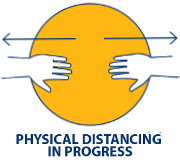|
Kal Torak posted:Back in 2004 and earlier, non-capital losses could be carried forward for a period of 7 years. That has since been changed and now you don't lose them for 20 years. What's an example of a non capital loss?
|
|
|
|

|
| # ? Apr 26, 2024 08:50 |
|
Lexicon posted:What's an example of a non capital loss? It's basically any loss that isn't a capital loss. So for individuals, a self-employed business loss or partnership loss would be an example. Farm loss as well. For a corporation, anything that isn't a capital loss....basically a loss from operations.
|
|
|
|
Kal Torak posted:It's basically any loss that isn't a capital loss. Interesting, thanks.
|
|
|
|
Lexicon posted:It's strictly an arithmetic question, based on your marginal rate now, and your expected marginal rate in retirement. It is actually a much more complicated arithmetic question and has some non arithmetic components. The poster stated that his TFSA will soon be full. Therefore the relevant comparison is comparing unregistered accounts to an RRSP (as opposed to a TFSA to an RRSP, in which case I would agree with your analysis, assuming tax rates were equal in both cases). The tax you pay annually on interest/dividends or when stocks are sold (presumably some will be sold before retirement) means that the growth rates are different between registered and unregistered accounts. In fact, the third reply to the first comment on the article you posted says exactly this. Depending on time frames it may be prudent to invest in an RRSP even if you expect a higher rate at retirement, because the additional growth will offset this tax rate differential. There is also a real benefit relating to government benefits and the impact of your income on them. RRSPs allow you to smooth your income and help avoid or mitigate things such as OAS clawback (which functions like an extra 15% tax for income in a certain range). This can also help mitigate the tax rate differential when you retire. RRSPs also have creditor protection in some provinces. If you're 20, it is not inconceivable that you will file for bankruptcy or otherwise default on a debt in the next 50 years.
|
|
|
|
Guest2553 posted:
There's still people out there who turn down raises because they're worried it'll bump them into the next "tax bracket".
|
|
|
|
MrAmazing posted:It is actually a much more complicated arithmetic question and has some non arithmetic components. Yeah, obviously my response was overly simplistic as there are indeed some substantial non-arithmetic reasons to use an RRSP. I stand by the marginal rate calculus as the primary determinant though. I think it's stupid to contribute, with the intent of using those funds in retirement, if you don't have a substantial tax reduction today to realize. Creditor protection is not good enough of a reason for someone who makes, say, 30k a year to contribute - unless they have awfully extenuating circumstances.
|
|
|
|
https://ca.finance.yahoo.com/video/fee-transparency-235800473.html This is a good thing. I like how the interviewer says quote:On an average $50,000 account, they are going to see listed out over $1000 in fees and some are going to say "hey wait a second, I see you maybe once a year.." I know some people will still have a glazed look over their eyes, but maybe many others will get pissed off when they see the prices disclosed in front of them for the privilege of letting them invest their money.
|
|
|
|
slidebite posted:https://ca.finance.yahoo.com/video/fee-transparency-235800473.html And let's not forget... $1000 in fees on a $50k account represents a 2% MER. Some funds are somehow worse than that!
|
|
|
|
So what is the worst possible fund you can buy in Canada? Consistently awful performing and most expensive are the metrics. Here is my contribution: http://www.globefund.com/servlet/Pa...rofile_type=ROB  MER 7.63% MER 7.63%  10 year return of almost -30% slidebite fucked around with this message at 20:22 on Jul 16, 2014 |
|
|
|
I believe this one has the highest MER in the country (9.26%) with a negative return over the last 5 years: http://www.theglobeandmail.com/globe-investor/funds-and-etfs/funds/summary/?id=64590
|
|
|
|
|
|
|
|
Holy poo poo.quote:The Fund's investment objective is to achieve long-term capital appreciation through investment in a diversified portfolio of private and public companies which qualify as eligible businesses under the Ontario Act.
|
|
|
|
I opened a RSP account with National Bank through my work because they don't have a conventional pension. After consulting the advice in this thread I stop after one 100 dollar contribution, I got a letter yesterday showing that 100 dollar contribution was down to 1 cent due to a yearly 99.99 "administrator fee". I haven't talked to anyone at all at the bank at all and my work was already covering 500 dollars in fees for setting up the account.
|
|
|
|
This is why I didn't ask for a performance review before exiting Edward Jones and going to TD. I'm sure I would have cried at the fees.
|
|
|
|
What happens to vastly inferior funds like this? Do they eventually close up? Can you track the movements of the fund manager?
|
|
|
|
A lot close down or are rolled together to make new funds. Mortality rate for them, or even things like hedge funds, is way north of 50% (but I'd have to look up a source to nail it down further than that).
|
|
|
|
Guest2553 posted:A lot close down or are rolled together to make new funds. Mortality rate for them, or even things like hedge funds, is way north of 50% (but I'd have to look up a source to nail it down further than that). There was data on this in my CFA textbook. I'll see if I can dig it up later today.
|
|
|
|
Lexicon posted:Yeah, obviously my response was overly simplistic as there are indeed some substantial non-arithmetic reasons to use an RRSP. I stand by the marginal rate calculus as the primary determinant though. I think it's stupid to contribute, with the intent of using those funds in retirement, if you don't have a substantial tax reduction today to realize. Creditor protection is not good enough of a reason for someone who makes, say, 30k a year to contribute - unless they have awfully extenuating circumstances. I disagree arithmetically. Lets take this 30k a year person and assume they live in BC. Assume that they put $1000 into an RRSP and investment that into investments that return 9% with a 40/40/20 split of gains. dividends, and interest. The comparable unsheltered investment is $767.40 ($1,000 less tax at the marginal rate of $23.26) The RRSP contribution, assuming a 30 year time frame (i.e., the contributor is in their 20 or 30s), will grow to $13267,68. For those following along in Excel, the formula is =1000*1.09^30 The unsheltered investment of 767.4 is a bit trickier to calculate. First, we need to calculate the weighted average tax rate on the investment income using the marginal rate on gains, eligible dividends and interest. The formula for that (assuming BC resident with $30,000 of income) is as follows: =(11.63%*.4)+(0%*.4)+(23.26%*.2). This gives us a weighted average tax rate of 9.304% on the growth of that principal. We can then use that to figure out the actual decrease in investment growth and calculate what the principle will be in 30 years. The formula for that is =767.4*(1+(0.09*(1-0.09304)))^30 and the result of that is a principal of $8078.68 in 30 years. Tax is of course still due on RRSP withdrawals. However, the unsheltered account has 61% of the principal of the RRSP account, meaning you could pay tax up to 39% on your withdrawal and still break even. There are lots of assumptions here, such as a high churn on securities and the rate of return, but over a long time frame tax sheltered accounts are superior because of the higher growth rate. Generally, the longer the time frame and the higher your marginal rate the bigger the difference gets. If we assume that this person makes $75,000 and adjust the weighted average tax rate/contribution amounts accordingly the RRSP account has a value of almost twice the unsheltered investment after 30 years.
|
|
|
|
MrAmazing posted:I disagree arithmetically. You forgot federal tax; your math is wrong. Also no idea where you got your marginal tax rates. Here are the actual ones: http://www.taxtips.ca/taxrates/bc.htm. Also putting otherwise beneficially taxed income in an RRSP moves it to normal income. You can't do the front end of the calc and then just armwave the back end. The short version is that if your tax rate changes you will come out roughly equal with money in and out of RRSP, with a slight bias to OUT at equal tax rates given beneficial rates applied to dividends and cap gains, and are better off with the money out if your expected retirement rate goes up and more money in if your expected retirement rate goes down from current. The latter is the case for the vast majority of taxpayers which is why this is the usual recommendation. This calc has been done ad nauseum in a hundred different places. The answer isn't a mystery any more. I don't really get why it needs to be debated again. E: whoooopps my post applies to RRSP v TFSA. The RRSP vs taxable is closer to vvvvvv Kalenn Istarion fucked around with this message at 01:48 on Jul 21, 2014 |
|
|
|
I saw RRSPs explained in a different way, that made them far more attractive than marginal blah blah blah blah explanations which get really, really complicated. I was previously not a fan of RRSPs (I haven't contributed to mine because my situation is a bit complicated despite thinking they are absolutely fantastic now) Given that when you contribute, you 'put in' say $1000, $710 of which is yours and $290 CRA's stake in the account (yes, this depends on current marginal tax rate). Then the growth compounds from capital gains, dividends, income, blah. Let's say over 10 years, the growth rate is 9% annually- a return of 137%. So the account grows to $2367 from $1000, of which $687 is CRA's and $1680 is yours. You then sell this stock and pull it out of your RRSP. If your tax rate is the same, you will end up with $1680 or so. Even if your tax rate increases slightly, they will still be equal to a TFSA (you can test out the math), and by far superior to a taxable account! Compare this to a taxable account, where you put in $710 for comparison's sake. Hypothetically let's say there is a small drag on growth due to dividend taxes of 11% (Canadian eligible dividends), so let's say it grows at 8.5%/year- a return of 126% - ending with $1605. Now, after 10 years, you sell this stock. You will then pay cap gains on this. (1605-710 = 895 * 0.5 = $447.50 of taxes), leaving you with $1157.50. Yes, the RRSP is still vastly superior at similar tax rates. That said, if you know your tax rate will increase as you're expecting big promotions/etc then yes, save the room. And yes, because it does increase your income when you take it out, it can affect OAS clawbacks.
|
|
|
|
Another good RRSP expository piece: http://www.michaeljamesonmoney.com/2014/03/debunking-rrsp-myths-with-pictures.html I must admit, I've softened my RRSP skepticism considerably since the beginning of this thread.
|
|
|
|
Kalenn Istarion posted:You forgot federal tax; your math is wrong. Also no idea where you got your marginal tax rates. Here are the actual ones: http://www.taxtips.ca/taxrates/bc.htm. Also putting otherwise beneficially taxed income in an RRSP moves it to normal income. You can't do the front end of the calc and then just armwave the back end. You're right, the tax rates are wrong although I didn't forget federal tax. I used EYs 2014 calculator, which overstates the rate by 3%. PwC appears to be correct. https://secure.ca.pwc.com/8525770E0077F8AB/calculators2014?Readform Hopefully that link works. The math still works if you change the weighted average rate calc. to =(10.03%*0.4)+(0%*0.4)+(7.61%*0.2. I agree that it shouldn't need to be debated. This comment was in response to someone saying that you should decide whether to contribute to an RRSP or unregistered account solely by comparing rate now and rate at retirement, which isn't the case over a time frame of any significant length.
|
|
|
|
Useful perspective: http://www.vox.com/personal-finance/2014/7/22/5877329/less-than-a-quarter-of-americans-get-the-most-important-investment
|
|
|
|
What's a good Canadian Credit Card for foreign $$ use? I'm looking at the Amazon.ca visa card with no foreign conversion fees, but is there anything else I should pay attention to? http://www.amazon.ca/gp/cobrandcard/marketing.html I go to the US a fair amount and also do internet shopping.
|
|
|
|
slidebite posted:What's a good Canadian Credit Card for foreign $$ use? I'm looking at the Amazon.ca visa card with no foreign conversion fees, but is there anything else I should pay attention to? As far as I know, this one is as good as it gets. No other Canadian card charges the spot forex rate (apparently) - the rest help themselves to a 2.5% margin. I have this card and really like it - the one minor downside is that they have no paperless billing option in the year of our lord 2014 (!).
|
|
|
|
Lexicon posted:As far as I know, this one is as good as it gets. No other Canadian card charges the spot forex rate (apparently) - the rest help themselves to a 2.5% margin. I have this card and really like it - the one minor downside is that they have no paperless billing option in the year of our lord 2014 (!). That said, at least they auto-redeem the points. MBNA SmartCash mails you a cheque that you get 6 weeks later. Granted I have tangerine and can deposit it with my phone, but still. It's 1% rewards also doesn't have a cap, unlike MBNA SmartCash.
|
|
|
|
rhazes posted:That said, at least they auto-redeem the points. MBNA SmartCash mails you a cheque that you get 6 weeks later. Granted I have tangerine and can deposit it with my phone, but still. It's 1% rewards also doesn't have a cap, unlike MBNA SmartCash. Yeah, it's a good card. The only thing it lacks is the fringe insurance benefits (eg car rental) and purchase protection - but I keep my SmartCash around for that. Having both is a pretty awesome combination.
|
|
|
|
I ended up buying a shredder mostly to deal with the mountains of paper I end up with every month from the Amazon card and the Capital One Travel card. I wish I had thought to put that in my credit card choosing spreadsheet.
|
|
|
|
Kreez posted:I ended up buying a shredder mostly to deal with the mountains of paper I end up with every month from the Amazon card and the Capital One Travel card. I wish I had thought to put that in my credit card choosing spreadsheet. You should have a shredder anyway 
|
|
|
|
Thanks for the input folks, I'll probably get one.
|
|
|
slidebite posted:Thanks for the input folks, I'll probably get one. I'll get one after I get a filing cabinet. Someday. 
|
|
|
|
|
slidebite posted:What's a good Canadian Credit Card for foreign $$ use? I'm looking at the Amazon.ca visa card with no foreign conversion fees, but is there anything else I should pay attention to? Oh sweet. Thanks for posting, I didn't know anything about this. I'm heading to New York in August so I think I will get this in advance of that. Plus I buy a tonne off amazon so this will be great.
|
|
|
|
I was just reading an article on CBC.ca about paying off your mortgage faster, and I don't fully understand one point they're trying to make. http://www.cbc.ca/news/business/paying-off-your-mortgage-faster-can-pay-huge-dividends-1.2719753 CBC posted:Since mortgage payments are made with after-tax dollars, putting extra money down on a debt with an interest rate of 3.49% is equivalent to getting a guaranteed, risk-free return of over five per cent. If your mortgage rate is higher, so would the return be. What investments aren't after-tax for the average worker? I have a high marginal, so I'm putting money into my RRSP (even though I have a pension) to reduce my taxable income. This usage of after-tax money will allow me to defer taxation to later years by providing me with a refund (which I will also plop into my RRSP) and hopefully provide me with at least a 5-7% annual rate of return, which is higher than my mortgage rate. If I put that after-tax money onto my mortgage, it would save me 2.89% interest annually. Unless my mortgage rate goes up, where are they deriving this magical 3.49% = 5% calculation? Am I really missing something here? fake edit: Originally posted this in the Bad With Money thread, but meant to post it here. Rick Rickshaw fucked around with this message at 17:54 on Jul 28, 2014 |
|
|
|
I guess he's saying that because you pay after tax you need to earn $5 to pay $3.50 of your mortgage. If you pay an extra $3.50 towards principal this year, that's $5 of earnings you can put in your RRSP next year or do $5 less work if you're self employed?
|
|
|
|
It's not a very credible or worthwhile point IMO. Outside of RRSP contributions, there's no real reason to be thinking in pretax amounts.
|
|
|
|
I don't quite get that article either.
|
|
|
|
I currently live in Alberta, and will have $48,600 taxable income this year. I'm enrolled in my companies ESPP for a 10% gross contribution, with 50% matching, for a total monthly contribution equalling $562.50. The ESPP purchases are made in an RRSP. The only options for the ESPP are RRSP or taxable. Obviously since it's an RRSP, it is more tax efficient to contribute at a higher tax bracket than you will be making withdrawls. My tax rate is 32% for over $43,953 up to $87,907, and I expect to be in this bracket for the next few years. Am I correct in thinking that I do not want to claim RRSP deductions to bring me below $43,953? In other words, should I make sure my 2014 taxable income stays at $43,954 or above? I can change my contribution location and % once per quarter, but it seems like such a pain to track the contributions and modify the %, or direct them into a taxable account, just to keep my taxable income at the desirable level. I'm thinking it would be easier just to let some of the deductions carry over to the next year.... Does any of this make sense? I know the gains I'm making on the shares through the match and capital gains far outweigh any minute changes in tax efficiency, but I'd at least like to make it as efficient as possible.
|
|
|
|
Grouco posted:I currently live in Alberta, and will have $48,600 taxable income this year. I'm enrolled in my companies ESPP for a 10% gross contribution, with 50% matching, for a total monthly contribution equalling $562.50. The ESPP purchases are made in an RRSP. The only options for the ESPP are RRSP or taxable. I would carry over some of the deductions to the next year. That link Lexicon posted to the Michael James blog about RRSP myths and taxable accounts is a good one to look over.
|
|
|
|
Rick Rickshaw posted:I was just reading an article on CBC.ca about paying off your mortgage faster, and I don't fully understand one point they're trying to make. It's just boilerplate financial advice. Not worth reading any more into it than that. In a climate where most people use a TFSA as an actual savings account, if at all, paying the mortgage off early is a fine strategy. The truth is that most people take a mortgage that equates to the maximum payment they can afford, so it's moot anyhow. TLDR - people are idiots.
|
|
|
|

|
| # ? Apr 26, 2024 08:50 |
|
Canadian Finance: People are Idiots
|
|
|








 It would seem so, yes
It would seem so, yes  I heard there was a 7 year expiry date for contribution room by (what I thought was) a financially savvy dude at work and ran with it ever since.
I heard there was a 7 year expiry date for contribution room by (what I thought was) a financially savvy dude at work and ran with it ever since.












